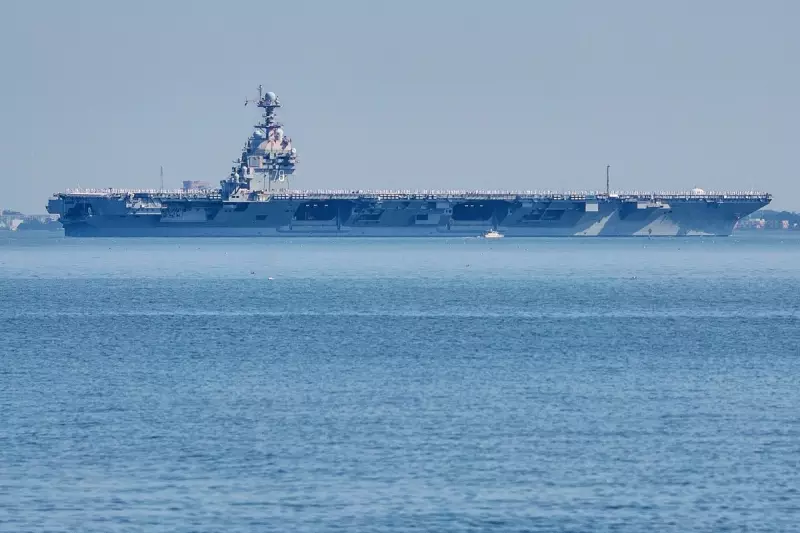
The United States' most senior military officer has embarked on a significant visit to American forces stationed in Puerto Rico and aboard Navy vessels in the Caribbean region, as tensions with Venezuela continue to escalate.
Military Buildup in the Caribbean
General Dan Caine, who serves as Chairman of the Joint Chiefs of Staff and acts as President Donald Trump's primary military adviser, commenced his tour on Monday. He is accompanied by David L. Isom, his senior enlisted adviser. According to an official statement from Caine's office, the purpose of their visit is to "engage with service members and thank them for their outstanding support to regional missions."
This marks General Caine's second trip to the area since the United States military began substantially increasing its presence in the region. The current deployment includes the nation's most advanced aircraft carrier among an unusually large fleet of warships that have gathered in Caribbean waters.
Escalating Pressure on Venezuela
The timing of General Caine's visit coincides with President Trump evaluating potential military action against Venezuela, an option he has explicitly refused to rule out. This consideration forms part of the administration's intensifying campaign to combat drug trafficking into the United States.
The substantial buildup of American naval power and subsequent strikes have already resulted in more than 80 fatalities across 21 vessels allegedly involved in drug smuggling. Many observers interpret these actions as deliberate pressure tactics aimed at forcing Venezuelan President Nicolás Maduro to resign from power.
The Trump administration has further escalated tensions by designating the Cartel de los Soles, also known as the Cartel of the Suns, as a foreign terrorist organization. American authorities allege this entity is led by Maduro himself, though it doesn't strictly operate as a conventional cartel.
Expanding Definitions of Terrorism
This designation represents a significant shift in American foreign policy. Until this year, the foreign terrorist organization label had been exclusively applied to groups such as Islamic State and al-Qaida, which employ violence to achieve political objectives.
However, the Trump administration expanded this classification in February to include eight Latin American criminal organizations involved in drug trafficking, migrant smuggling, and other illicit activities. The administration attributes operations of the boats being targeted in current strikes to these designated groups, though it rarely identifies specific organizations and has not publicly presented evidence supporting these claims.
Defense Secretary Pete Hegseth stated last week that designating Cartel de los Soles as a terrorist organization would provide the United States with a "whole bunch of new options" for dealing with Maduro's government. During an interview with conservative news outlet OAN, Hegseth declined to specify what these options might entail and refused to confirm whether the U.S. military planned strikes against land targets within Venezuela's borders.
"So nothing is off the table, but nothing's automatically on the table," Hegseth remarked, maintaining strategic ambiguity about future actions while keeping military options available.





